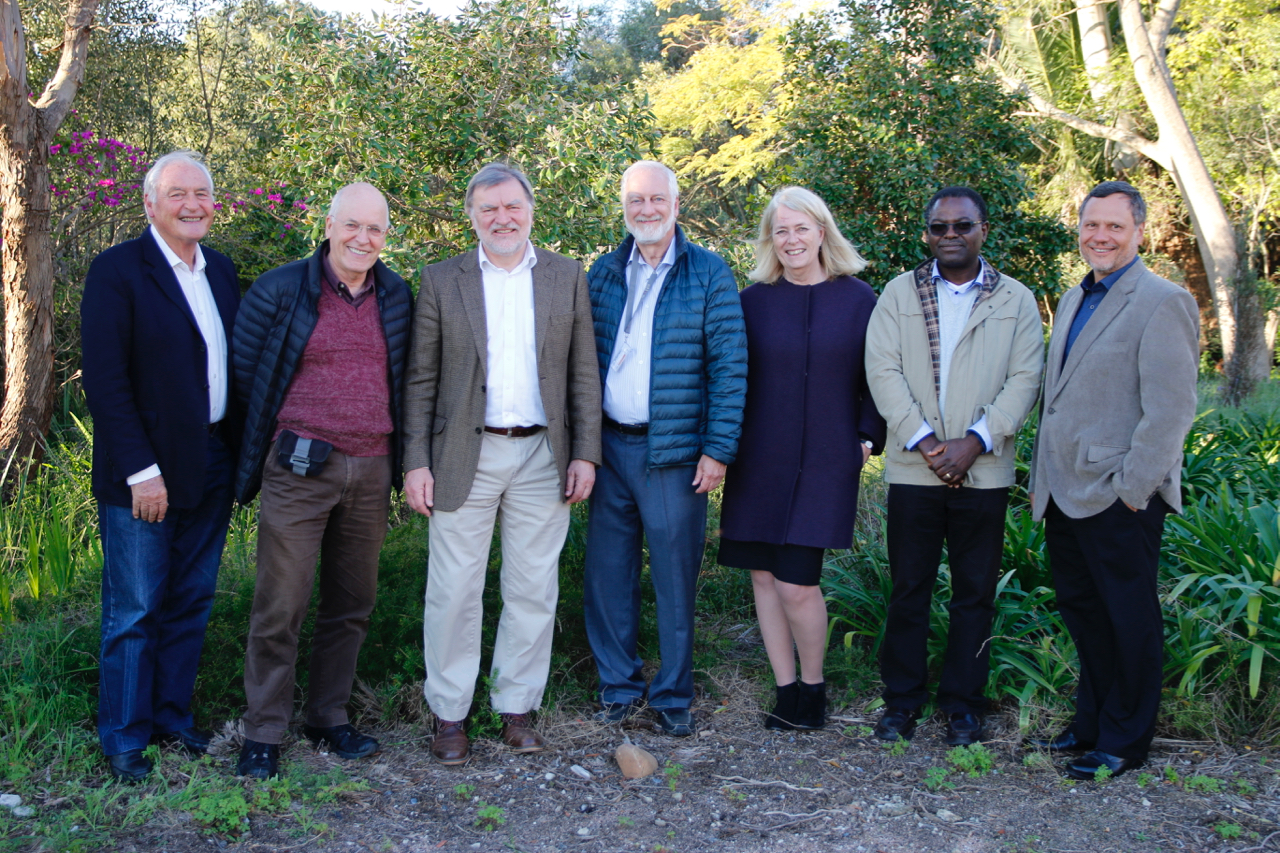The Stellenbosch Institute for Advanced Study (STIAS) has been invited to join a select group of international institutes for advanced study known by the acronym SIAS (the Some Institutes for Advanced Study).
This makes STIAS the first southern hemisphere and first African institute to join this consortium, which also includes the Princeton Institute for Advanced Study, the Center for Advanced Study in the Behavioural Sciences in Stanford, the National Humanities Center in North Carolina, the Radcliffe Institute for Advanced Study at Harvard, the Netherlands Institute for Advanced Study, the Swedish Collegium for Advanced Study, the Berlin Institute for Advanced Study, the Israel Institute for Advanced Studies, and the Nantes Institute for Advanced Study.
.jpg)
“The invitation is a sign of recognition and appreciation of the quality of the STIAS programme," STIAS Director Prof Hendrik Geyer said in a statement earlier this week (11 September 2018).
“I think it is also a clear signal that international institutes for advanced study are increasingly engaging with the African academic and research world."
STIAS was established by Stellenbosch University (SU) in 1999 to provide a fellowship programme that would advance cross-disciplinary research at the highest level in the search for solutions to pressing issues facing the world – in particular, South Africa and the rest of the African continent. Initially, STIAS functioned as part of the SU structure, but in 2007 it became a Section-21 not-for-profit company. SU is still a member of the company, but STIAS is governed by its own board of directors.
“Our aim remains to advance science and scholarship across disciplines in the country and on the continent, to focus on Africa, and to provide a space where creative thinking can take place," Geyer said.
“From early on, we took a cue from existing institutes for advanced study – some of whom are current members of the SIAS group. We wanted to avoid the image of an ivory tower and to confront real-life problems. It is about facilitating and unleashing the potential of Africa as a leading contributor to global research and as a producer of new knowledge," he said.
These features resonated with the SIAS consortium, which states among the conditions that any potential member should fulfil a commitment to the highest standards of scholarship, a competitive fellowship programme, sustainable funding, and independence from both university and government structures.
“Independence from university and state structures is imperative, and distinguishes members of this group from other institutions with similar names which are often closely tied to university programmes and directly operated as part of universities," Geyer said.
The SIAS group meets regularly to discuss matters of common interest and to explore potential partnerships and collaborations. The SIAS invitation to STIAS flows ongoing interactions with and official visits from the directors of the other institutes over a number of years.
“Being associated with such well-known and respected global institutions brings a stamp of quality which we hope will resonate across all of STIAS's activities and further enhance our goals and objectives," Geyer said.
SU has welcomed the admission of STIAS to the SIAS grouping.
“We are proud that STIAS is enjoying growing international recognition – which is good for our University, country and continent," SU Council Chair Mr George Steyn said.
STIAS is providing the opportunity for high-level research and intellectual development on the University's doorstep. It is attracting some of the world's leading scholars but also providing young researchers from the African continent with early-career support through its Iso Lomso programme.
SU Rector and Vice-Chancellor Prof Wim de Villiers said: “SU benefits in many ways from its relationship with STIAS. This includes the fact that the Institute offers a number of PhD bursaries to SU students and contributes directly to the University's research outputs, which has a positive impact on our position in world rankings."
* Caption for the photograph above: The Director of the National Humanities Center in the US, Dr Robert D. Newman (centre) with members of the STIAS Research and Fellowship Programme Committee, from left, Professors Bernard Lategan, Jannie Hofmeyr, Hendrik Geyer, Louise Viljoen, Francis Nyamnjoh, and Louis Jonker. Dr Newman represented the SIAS consortium during a visit to STIAS in August 2018. Photograph: Dr Christoff Pauw

